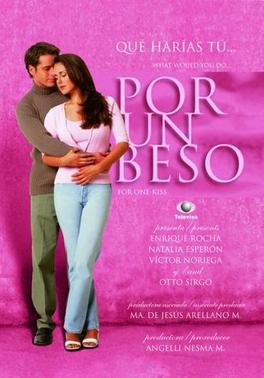Alcanzar una estrella II is a Mexican telenovela produced by Luis de Llano Macedo for Televisa in 1991. It is the sequel to Alcanzar una estrella.

Amigos x siempre is a Mexican children's telenovela produced by Rosy Ocampo for Televisa that premiered on January 10, 2000 and ended on June 16, 2000. The story is set at a prestigious, but rigid and repressive school called Instituto Vidal, where a group of children from a variety of backgrounds form a special friendship, using music as their bond. It stars Adriana Fonseca, Ernesto Laguardia, Martín Ricca, Carmen Montejo, Odiseo Bichir, Rebecca Mankita, Héctor Ortega and Belinda.

The LVI Legislature of the Congress of the Union of Mexico met from 1994 to 1997.

Primer amor, a mil por hora is a Mexican telenovela produced by Pedro Damián for Televisa in 2000. It is a remake of another Televisa telenovela titled Quinceañera. This teen-oriented soap was one of the highest-rated in its time slot.

¡Vivan los niños! is a Mexican telenovela produced by Nicandro Díaz González for Televisa. It aired on Canal de las Estrellas from July 15, 2002, to March 17, 2003. It's an adaptation of the 1983 Argentinean telenovela Señorita maestra.
The National Prize for Arts and Sciences is awarded annually by the Government of Mexico in six categories. It is part of the Mexican Honours System and was established in 1945. The prize is a gold medal and 520,000 pesos.

Mi destino eres tú is a Mexican telenovela produced by Carla Estrada for Televisa that premiered on July 10, 2000 and ended on November 10, 2000.

Amor sin Maquillaje is a mini novela that was shown in 2007. It is a production of Rosy Ocampo, who also produced La Fea Mas Bella. It stars Marlene Favela, Sergio Goyri, Lucía Méndez and Carmen Montejo. It was a tribute to the 50 years of telenovelas in Mexico.

Mañana es para siempre is a Mexican telenovela produced by Nicandro Díaz González for Televisa in 2008. It is an adaption of the 2007 Colombian telenovela Pura sangre. It aired on Canal de las Estrellas from October 20, 2008 to June 12, 2009.
The Municipal President of Ciudad Juárez, officially the Constitutional Municipal President of Juárez, is the head of local government in Juárez, a populous industrial municipality in the north of the Mexican state of Chihuahua. The office is the equivalent to a mayor. The population of the seat of the municipality accounts for the majority of the municipality's population.

Sueños y Caramelos is a Mexican telenovela produced by Carlos Moreno Laguillo for Televisa in 2005. It is a remake of La Pícara Soñadora.
La antorcha encendida is a Mexican telenovela produced by Ernesto Alonso and Carlos Sotomayor for Televisa in 1996. It was the last historical telenovela produced by Televisa. The plot tells the Independence of Mexico, with an emphasis on historical accuracy. It was written by Fausto Zeron Medina in collaboration with Liliana Abud. It premiered on Canal de las Estrellas on May 6, 1996, and ended on November 15, 1996.

Por un beso is a Mexican telenovela produced by Angelli Nesma Medina for Televisa in 2000. Based on La gata by Inés Rodena. It premiered on November 13, 2000 and ended on March 30, 2001.
Barata de primavera is a Mexican telenovela produced by Valentín Pimstein for Televisa in 1975.
Sin ti is a Mexican telenovela produced by Angelli Nesma Medina for Televisa in 1997. This telenovela based on 1980 Mexican telenovela Verónica.
Salud, dinero y amor is a Mexican telenovela produced by Emilio Larrosa for Televisa in 1997–98. Is a sequel of 1995 Mexican telenovela El premio mayor.
The Premios Juventud 2011 were held on July 21, 2011. The nominees were announced on May 16, 2011









